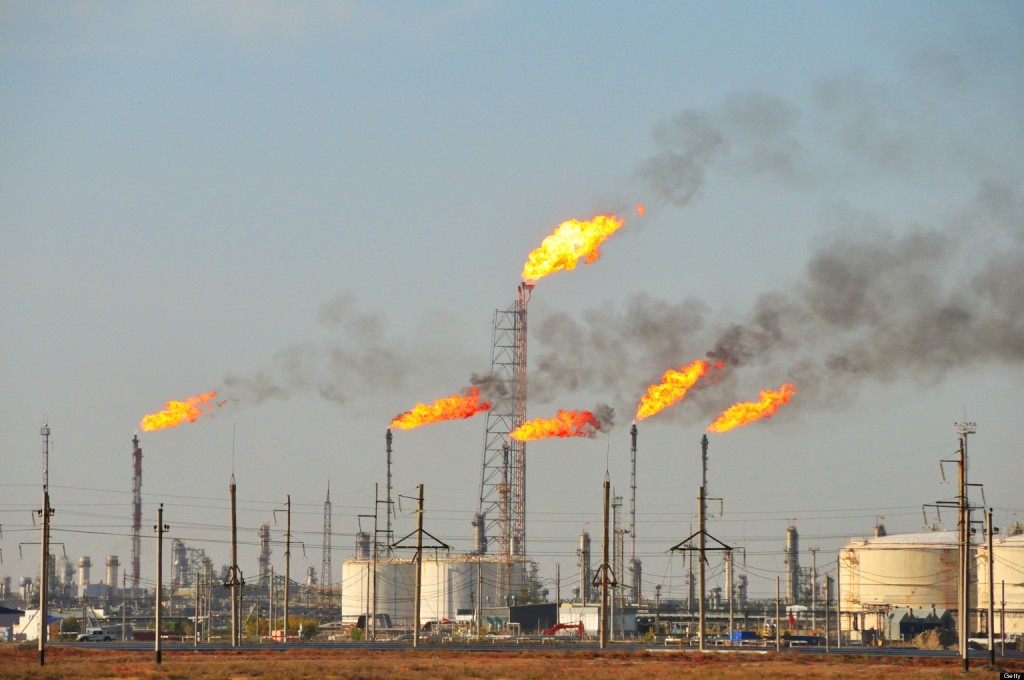The Nigerian National Petroleum Company Limited (NNPCL) and First Exploration & Petroleum Development Company Limited (First E&P) have achieved a remarkable 96% reduction in routine gas flaring at the Anyala (OML 83) and Madu (OML 85) fields, marking a significant stride towards environmental sustainability and responsible resource management. This achievement aligns with Nigeria’s Nationally Determined Contributions under the Paris Agreement, a global accord aimed at limiting global warming. The substantial reduction in gas flaring was primarily achieved through an innovative associated gas reinjection strategy implemented at the Madu field, located offshore Bayelsa State. This strategy involves capturing the gas that would typically be flared and safely storing it in an underground reservoir, significantly mitigating the environmental impact associated with flaring.
Gas flaring, the burning of natural gas associated with oil extraction, is a major contributor to greenhouse gas emissions, a key driver of climate change. It also releases harmful pollutants into the atmosphere, negatively impacting air quality and posing health risks to surrounding communities. By drastically reducing gas flaring, NNPCL and First E&P are not only contributing to a cleaner environment but also demonstrating their commitment to responsible energy production and sustainable development. The project underscores the potential for technological innovation and strategic partnerships to address pressing environmental challenges within the oil and gas sector.
The success of this initiative highlights the importance of collaborative efforts between industry stakeholders and regulatory bodies in achieving environmental sustainability goals. The project adheres to regulatory frameworks established by the Nigerian Upstream Petroleum Regulatory Commission (NUPRC), reinforcing the joint venture’s commitment to national environmental standards and global best practices. This collaboration ensures that operations within the oil and gas sector are conducted in a responsible and environmentally conscious manner, minimizing negative impacts on ecosystems and communities.
The leadership of both NNPCL and First E&P have expressed their strong commitment to environmental sustainability and responsible resource management. Mele Kyari, Group Chief Executive Officer of NNPCL, lauded the achievement as a testament to the company’s dedication to optimizing production while simultaneously upholding sustainability goals. He emphasized the company’s alignment with global standards and environmental best practices, highlighting their commitment to responsible energy production. Similarly, Ademola Adeyemi-Bero, Managing Director and Chief Executive Officer of First E&P, underscored the company’s unwavering commitment to environmental sustainability and responsible energy production. He emphasized the positive impact of reducing their carbon footprint, contributing to a sustainable energy future that benefits both the environment and local communities.
The significant reduction in gas flaring at the Anyala and Madu fields serves as a model for other oil and gas operations, demonstrating the feasibility and benefits of implementing sustainable practices. By showcasing the success of this initiative, NNPCL and First E&P are encouraging wider adoption of similar strategies within the industry, promoting a shift towards more environmentally responsible operations. The project also highlights the potential for economic benefits associated with reducing gas flaring. The captured gas, instead of being wasted through flaring, can be utilized for other purposes, such as power generation or as feedstock for the petrochemical industry, creating economic value and contributing to energy security.
The joint venture between NNPCL and First E&P exemplifies how collaborative efforts and technological innovation can drive positive change within the energy sector. The successful reduction in gas flaring is a significant milestone, not only for the companies involved but also for Nigeria’s efforts to meet its climate change commitments and contribute to a more sustainable future. The project demonstrates the potential for the oil and gas industry to play a crucial role in the transition to a cleaner energy future by adopting responsible practices and investing in innovative solutions. Furthermore, it underscores the positive impact that such initiatives can have on local communities and the wider environment, paving the way for a more sustainable and prosperous future for all stakeholders.


